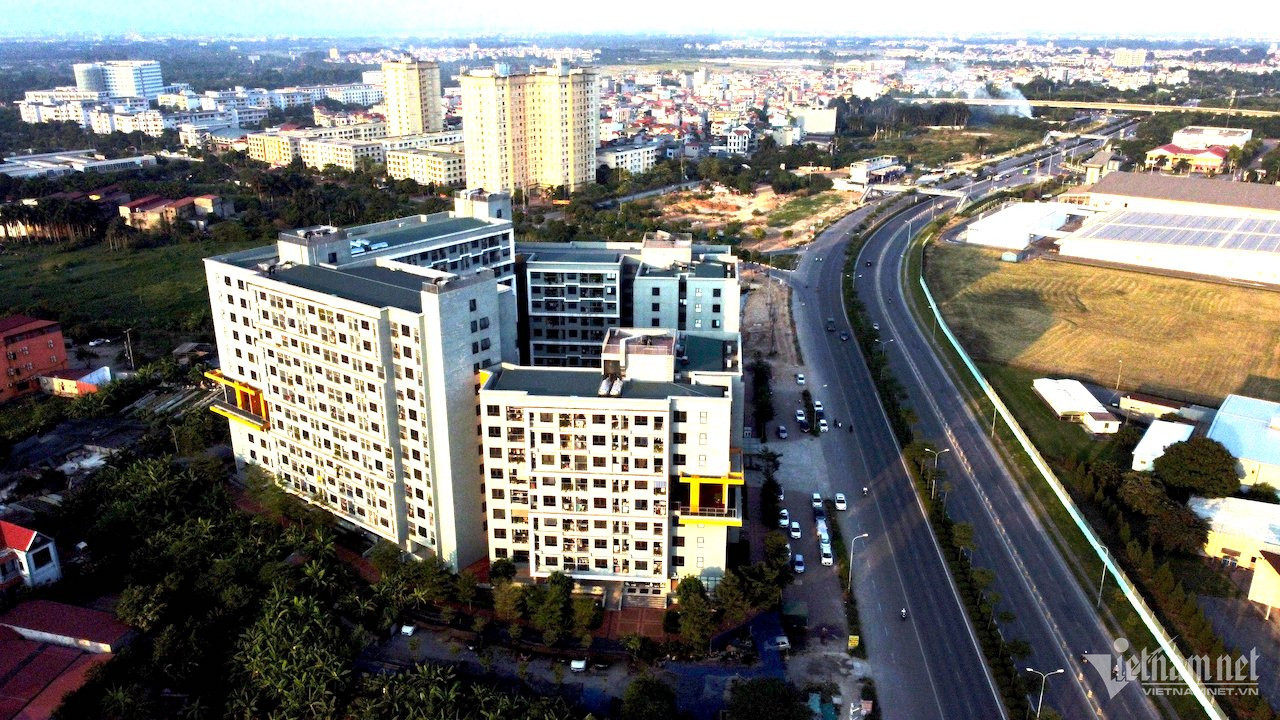
Many voters have expressed concerns that the prices of social housing remain too high for low-income workers, making it difficult for them to access affordable homes despite the government’s efforts.
Voter concerns about affordability
The Ministry of Construction recently responded to voters from An Giang Province who raised issues about social housing during the 8th session of the 15th National Assembly.
Voters emphasized that the development of social housing for low-income earners is a key humanitarian initiative by the Party and State.
However, they noted that the current prices of social housing are still beyond the reach of most workers, especially those with low incomes, limiting their ability to purchase homes.
Additionally, they highlighted challenges in securing loans for social housing.
Accessing loans from the Social Policy Bank remains difficult due to limited funds and complex procedures.
Meanwhile, commercial banks offer loans at high interest rates, placing financial pressure on monthly repayments and living costs, particularly for the required 30% upfront payment.
Voters urged the government to adopt more effective and comprehensive solutions to address the ongoing issues with social housing, a matter of concern across many provinces.
Ministry’s response on pricing regulations
Addressing the pricing issue, the Ministry of Construction explained that under the 2023 Housing Law, social housing prices are determined based on the total costs required to recover construction investment, including:
Compensation for land clearance and resettlement support.
Costs for building technical infrastructure within the project.
Loan interest (if applicable).
Reasonable business operation costs (such as sales and management expenses).
A regulated profit margin.
Notably, State incentives for social housing projects are not included in the price calculation.
Rental and rent-to-own prices are similarly calculated but exclude maintenance costs, which are covered by renters.
In cases where investors use auctioned land, re-assessment of prices is not required for the sale or lease of social housing.
Incentives to encourage social housing development
The Ministry also highlighted various incentives for social housing investors outlined in Article 85 of the Housing Law.
These include exemptions from land-use fees, tax benefits, and permission to allocate a portion of land or floor area for commercial purposes without including it in the social housing price.
Investors are also entitled to a 10% profit margin.
These provisions aim to stimulate investment and maintain social housing prices at affordable levels, ensuring that low-income workers can access stable housing.
Expanding access to loans for social housing
Regarding funding, the Ministry reported that the government and Prime Minister have directed ministries and sectors to develop additional financial sources to support social housing.
One notable initiative is the VND 120 trillion ($5 billion) funding package under Resolution 33 (2023), allocated by commercial banks and the State budget through the Social Policy Bank.
As of now, 37 out of 63 provinces have submitted project lists under this program, encompassing 90 projects.
The disbursed funds total VND 2.36 trillion ($100 million), including VND 2.16 trillion for developers of 17 projects and VND 198 billion for buyers of 15 projects.
Additionally, a VND 30 trillion ($1.25 billion) preferential credit package was proposed in 2024, comprising VND 15 trillion from government bond issuance and VND 15 trillion from local budgets.
The Ministry confirmed that it submitted a report to the Prime Minister at the end of 2024 regarding this initiative.
The Ministry candidly acknowledged that despite some progress, the implementation of the "1 million social housing units" initiative for low-income workers and industrial zone employees has fallen short of its goals for the 2021–2025 period.
By December 2024, only 40% of the target had been achieved in terms of completed and newly started projects.
Moving forward, the Ministry pledged to collaborate with other ministries, agencies, and localities to intensify efforts and implement specific measures to meet social housing development goals.
Hong Khanh